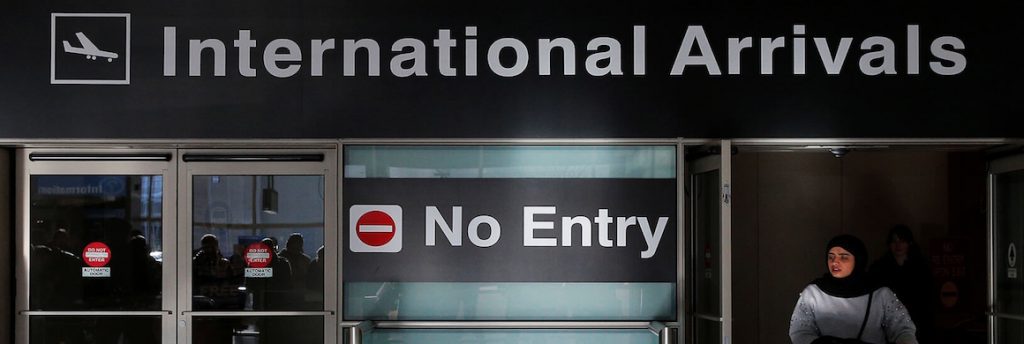The Stanford Graduate School of Business recently highlighted political economy professor and Stanford Immigration Policy Lab co-director Jens Hainmueller discussed potential economic, political and moral consequences of the Trump administration’s recent executive orders against refugees from Muslim countries and unauthorized Mexican immigrants.
“While these policies might make for effective scapegoating of immigrants or good political theater, what struck me most was the glaring inconsistency between the purported goals of these policies and the empirical reality of immigration. With this executive order, the administration has really oversimplified a complex process.”
Hainmueller points to the discrepancy between the $15-25 billion U.S.-Mexican border wall at a time when unauthorized immigrants from Mexico – who “contribute about 3 percent of the U.S. private sector GDP per year” – has all but stopped, potentially creating vast economic consequences. He also references Trump’s aggressive deportation campaign at a moment when “immigrant courts are tremendously backlogged.”
The order to shut down “the refugee resettlement program” is particularly baffling when “there hasn’t been a single fatal terrorist attack committed by a refugee in the U.S” since the Refugee Act of 1980 was passed.
“A lot of evidence suggests that refugees are among the poorest, most vulnerable populations in the world. To have the richest country in the world essentially shutting down its resettlement program has devastating humanitarian consequences.”
Hainmueller goes on to explain why the idea of a refugee terrorist attack is far-fetched: “The U.S. vetting process of refugees is one of the most rigorous. If you were a terrorist who wanted to harm the U.S., the last thing that you would do is apply for resettlement as a refugee. You would get caught. [Whereas] in Europe, most of the asylum seekers also cross the border and then apply for refugee status.”
Hainmueller says that executive orders carelessly sprung upon bureaucrats is a surefire recipe for chaos and confusion, which has already left many immigrants with legitimate claims in limbo.
“The U.S. economy feeds on the ability to attract global talent. About 40 percent of Forbes 500 companies were founded by immigrants or their kids, [including] Apple, Google, [and] Intel. At the Stanford GSB, 40 percent of MBAs are citizens of another country.”
Hainmueller believes that these “exclusionary” and “hostile” policies “will push some of this much-needed energy out of the U.S. economy and stymie discovery and innovation going forward.”
